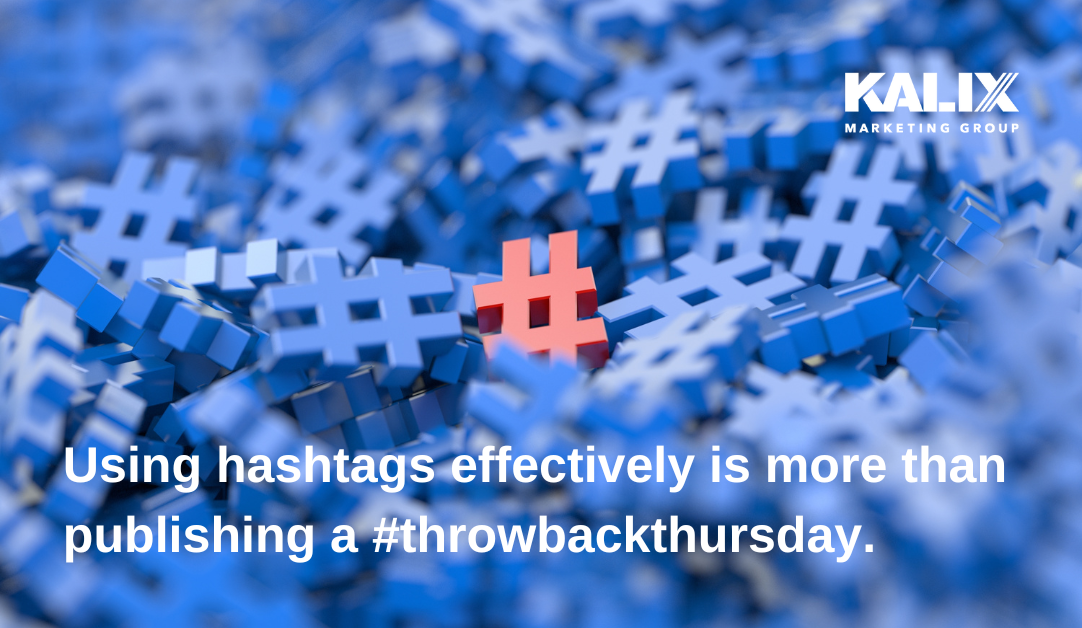The third and final post in our series for school marketers is all about hashtags. Most schools use them in their social posts, but few use them effectively or strategically.
Here are the basics to help you #master #hashtags.
How do hashtags help your marketing?
- They boost organic search and get more eyes on your school’s posts.
- They categorize your posts on social sites and across search engines to bring conversations about people, topics and events to the forefront while influencing engagement.
- They help channel the attention of families who might not yet know about your school but are looking for schools.
- They’re powerful ways to organize your digital content around a particular event or cause and help viewers find your school.
Using hashtags effectively, though, is more than publishing a #ThrowbackThursday post on Facebook. You need to know the various rules for using hashtags effectively on each site, which vary by platform.
Use hashtags on all channels
Hashtags are most popular on Twitter and Instagram, but also can be used on other social sites. Your social media content should include a mix of popular, relevant and branded hashtags. If your hashtags are too obscure, they’ll be hard to find and not likely used by your viewers.
First and most important: Use #NAMEOFSCHOOL on all your posts to promote your school and drive conversation.
Don’t make up a custom hashtag unless you plan to use it throughout a planned campaign. If you create, #[myschool]fooddrive, integrate it in all of your social posts on all of your social sites, use it in your signature lines, publish it on all printed materials, and encourage school leaders, staff, students and parents to incorporate it in their posts and comments.
Hashtag challenges are very popular and a great way to make your hashtags and associated events go viral.
Showcase your school’s students and campus life in Instagram and TikTok videos with hashtags such as #[nameofschool]life.
Learn which social media hashtags are trending on relevant social sites. What works on Instagram doesn’t necessarily work on Facebook. Want to learn what hashtags students are using? Check out their public posts and follow suit if your content is relevant.
Hashtags for Facebook
Research hashtags before you incorporate them into your posts, but don’t research them on Instagram. Instagram, though owned by Facebook, is a different platform. Facebook is about creating and building community, while Instagram tells stories through visuals.
You want to be sure that you use hashtags that are intentional, relevant and specific to your content. Use Hootsuite to research hashtags for Facebook. Its search streams will help you to discover which hashtags are trending and which are best for each social network.
Click on the hashtags you’re looking for to see how Pages and people are using them and which hashtags are getting good traction. If you don’t see a particular hashtag used in too many posts, it might not benefit your post.
How do you search for hashtags on Facebook? Simply type them into the search bar at the top left of your Page. As you enter #yourtext, Facebook populates the dropdown with the various hashtags that people are using.
A few Facebook hashtag best-practices to keep in mind:
- The ideal number of hashtags for Facebook is three to five.
- Branded hashtags work very well for brand visibility and overall tracking. Create hashtags for your school, including #SCHOOLNAME, #MASCOTNAME, etc. If your school culture is one where the school colors are central to your community, you might choose a hashtag for that, such as #trueblue, #redrules, etc.
- Use these hashtags along with content promoting your special events, open houses, parent education and other programs.
- Encourage your followers to do use your hashtags when they share your content with their friends and networks.
- Make sure to use them across ALL of your social, digital and print channels to reinforce search. By doing this, you can aggregate ALL of your content that uses the brand hashtag and even show up in Google search.
- Create extra spaces between your copy and hashtags so they’re not visible to the viewer. There’s no need for your hashtags to be visible in order to work. You want viewers to focus on your content!
Hashtags for Instagram
On Instagram, hashtags are very important to this visual social media channel. Best practices to keep in mind:
- Shoot for 10-15 hashtags on your post.
- Keep your hashtags relevant to the stories you publish.
- Always place your hashtags at the bottom of your text.
- As with Facebook, remember to create extra spaces between your copy and hashtags so as not to distract the viewers. They only need to see your creative content and nothing else.
- Keep your hashtags relevant to the stories you publish.
It’s important to research your hashtags. Follow the suggestions for Facebook hashtags but instead, research them directly on Instagram or other Instagram hashtag search sites.
Consider the volume of usage for the hashtags that you select to incorporate into your Instagram posts. While you don’t want to select those that indicate low engagement, it’s best to select some with high engagement, some with moderate engagement, and two or three with minimal engagement. This way you’ll reach viewers from all ends of the spectrum.
Research hashtags used by your competitors, influencers and even your parents. Young parents make heavy use of Instagram and are your best ambassadors.
You’ve Got This.
Making the most of your digital and social media isn’t hard, but it’s never been more important to help your school shine. To succeed, you need a strategy for your digital and social content and a content creation and posting plan that’s the right mix of relevant, engaging content and best-practices.
We’re here to help. Check out the other posts in this series to make sure you are making the most of your digital and social media marketing.
A School Marketer’s Guide to Integrating Your Social Media
A School Marketer’s Guide to Creating Better Facebook Content
Give us a call to see how we can help you go further with your digital and social media marketing.

